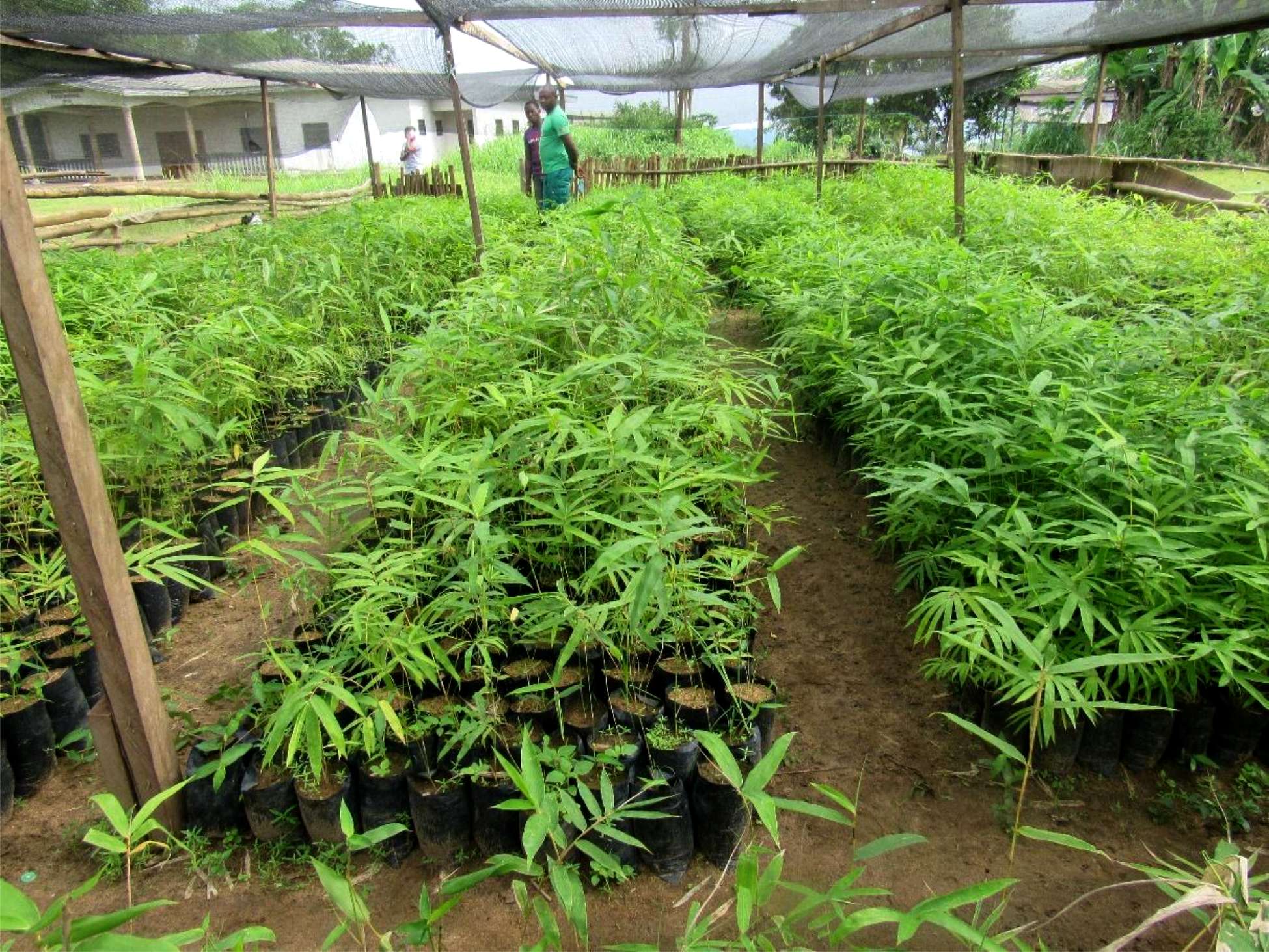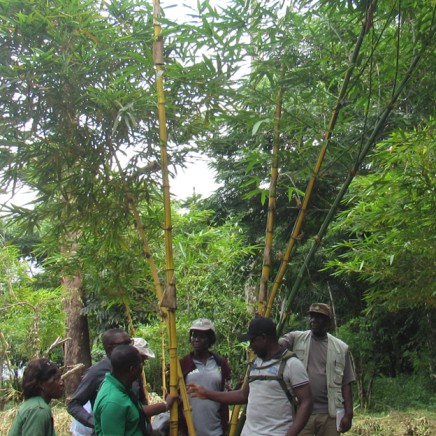Cameroon latest achievements on forest and landscape restoration
A new era for non-timber forest products in the Mbalmayo landscape
The approach has galvanized farmers who previously had no notion or interest in NTFP and bamboo
cultivation. Currently, at least 1 600 people living in rural areas in this landscape are involved in the
establishment of NTFP plantations through the TRI Cameroon project.
Mbalmayo is the capital of the Nyong-et-So’o Division and a council of the Central Region of Cameroon. Due to its position at a crossroads, Mbalmayo is the main gateway to the Southern Region of Cameroon and neighbouring countries, such as Gabon and Equatorial Guinea. Over the years, excessive logging has led to an increase in forest and landscape degradation and a gradual loss of ecosystem functionality. As a result, the local population, whose main income activity is agriculture, is facing poverty.
 Land cover map of Mbalmayo landscape.
Photo: IUCN
Land cover map of Mbalmayo landscape.
Photo: IUCN
The TRI project, through an inclusive approach, supports the aspirations of communities living in Mbalmayo by contributing to livelihood improvement through the restoration of degraded landscapes. This is achieved through the restoration and establishment of NTFP and bamboo plantations. Four species of NTFPs and five species of bamboo are being promoted.
With the support of local project partners, notably the National Forestry School (ENEF) and the non-governmental organization (NGO) Forest and Rural Development (FODER), restoration activities implemented in this landscape have already produced 100 183 NTFP and bamboo seedlings, which have been distributed to farmers over the 3 years of the project. This has enabled men, women and youth living in several localities of this landscape to establish NTFP and bamboo plantations. To ensure private ownership of these, the project also worked with the Ministry of Forests and Wildlife (MINFOF) to develop an Agroforestry Notebook, which was approved in February 2020. This tool has provided benefits to more than 20 farmers who have been able to register their plots with the local forestry administration as private properties and legally harvest various tree products.
Cécile Mviena, a member of the Groupement d’Initiative Communautaires d’Akomnyada (GIC AKOM) cooperative says, “I am a young woman, I live in the village, I have two children and thanks to the TRI project, I will no longer live in poverty.”
Similarly, a decision has been made to guide and ensure sustainable and profitable utilization of the plantations. This approach has galvanized farmers who previously had no notion or interest in NTFP and bamboo cultivation. Currently, at least 1 600 people living in rural areas in this landscape are involved in the establishment of NTFP plantations through the project. Such plantations vary across localities, with some being individual plantations while others are owned by cooperatives. Gradually,
this enthusiasm is also attracting private investors.
 Communities establishing an NTFP nursery. © FOGOH John Muafor
Communities establishing an NTFP nursery. © FOGOH John MuaforAccording to Cécile Mviena, a member of the Groupement d’Initiative Communautaires d’Akomnyada (GIC AKOM) cooperative, the arrival of the TRI project is an opportunity for the local people to improve their living conditions. She said: “I am a young woman, I live in the village, I have two children and thanks to the TRI project, I will no longer live in poverty.”
This hope is mainly due to the approach implemented, which focuses on restoring degraded areas, such as existing farmlands, through the promotion of agroforestry techniques.
The NTFP plants promoted in the field are mostly selected species, which are more productive and have a longer life cycle. These varieties – including those that produce twice a year or in the off-season – were chosen because they will allow the farmers to better benefit from this project and generate complementary income to improve their living conditions.
The seedlings produced under the project are distributed to farmers. These farmers, who were previously trained on agroforestry techniques, integrate the plants received into their cocoa, maize, cocoyam and other food crops. According to Reymond Ndang, one of the beneficiaries of the project, the agroforestry approach promoted enhances soil fertility, thus allowing for an increase in productivity not only of cocoa but also of NTFPs, which are sold in non-cocoa seasons. He said: “This is the first time that our village has benefited from such a pragmatic project that trains us, gives us the plants, assists us in planting and puts technicians at our disposal to monitor our plantations.”
 Seedling planting among the community. © FOGOH John Muafor
Seedling planting among the community. © FOGOH John Muafor
In 2023, the project will continue to strengthen and make farmers more resilient to climate change in this landscape, through the establishment of 200 ha more of bamboo and NTFP plantations. At least 300 farmers will be supported to establish new plantations, and those already engaged will be provided with financial incentives for the management of already existing ones. Machinery will also be provided to enhance value chain development of planted NTFPs and bamboo. In 2023, the project envisages providing machines to private entities for processing of bamboo leaves into bamboo tea in the Mbalmayo landscape, as well as the processing of neem seeds into neem oil in the Waza landscape.
This story is from TRI Year in Review 2022


